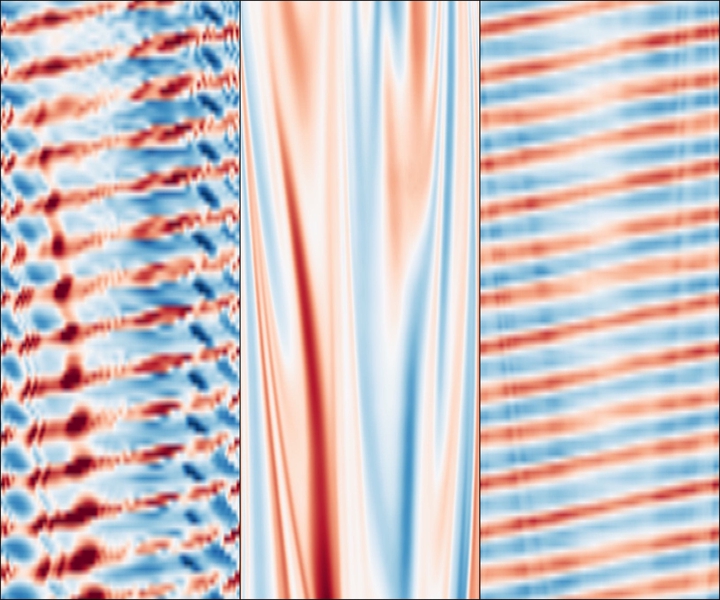Lagrangian filtering for wave–mean flow decomposition (Journal of Fluid Mechanics, 2025 in press)

Abstract
Geophysical flows are typically composed of wave and mean motions with a wide range of overlapping temporal scales, making separation between the two types of motion in wave-resolving numerical simulations challenging. Lagrangian filtering – whereby a temporal filter is applied in the frame of the flow – is an effective way to overcome this challenge, allowing clean separation of waves from mean flow based on frequency separation in a Lagrangian frame. Previous implementations of Lagrangian filtering have used particle tracking approaches, which are subject to large memory requirements or difficulties with particle clustering. Kafiabad & Vanneste (2023) recently proposed a novel method for finding Lagrangian means without particle tracking by solving a set of partial differential equations alongside the governing equations of the flow. In this work, we adapt the approach of KV23 to develop a flexible, on-the-fly, PDE-based method for Lagrangian filtering using arbitrary convolutional filters. We present several different wave–mean decompositions, demonstrating that our Lagrangian methods are capable of recovering a clean wave-field from a nonlinear simulation of geostrophic turbulence interacting with Poincar{'e} waves.